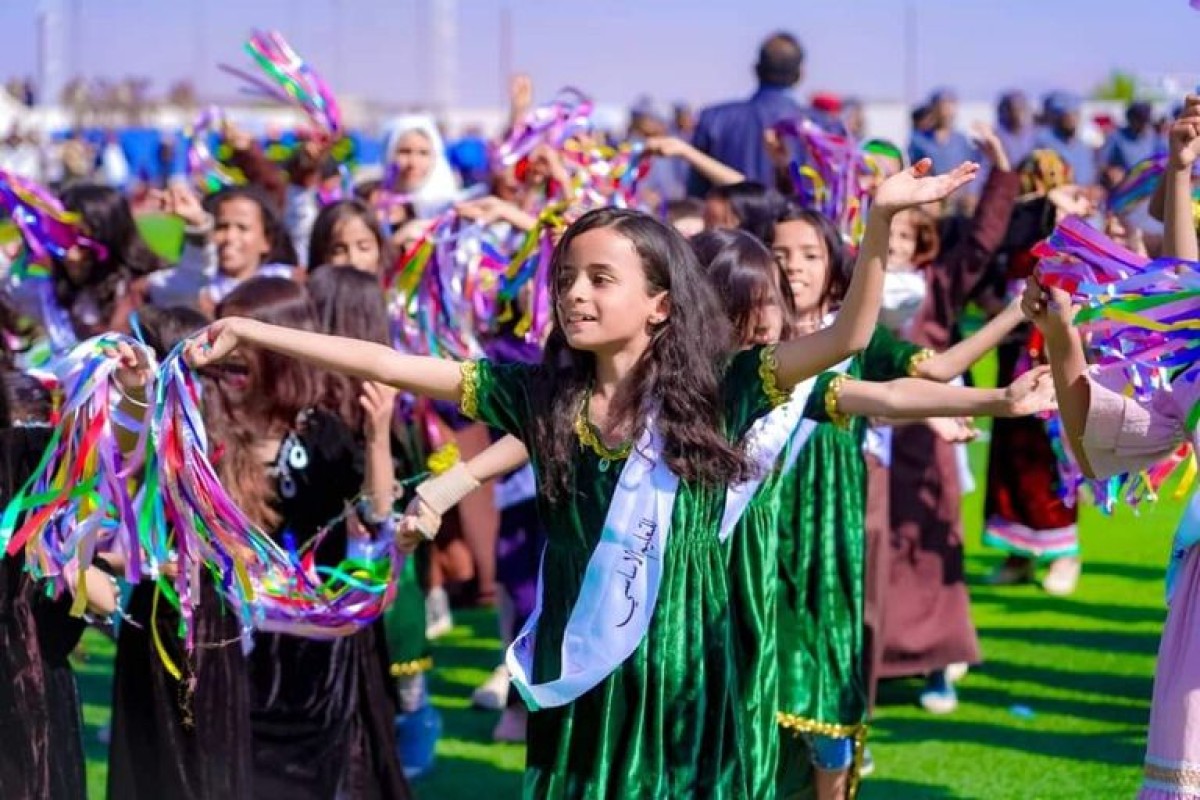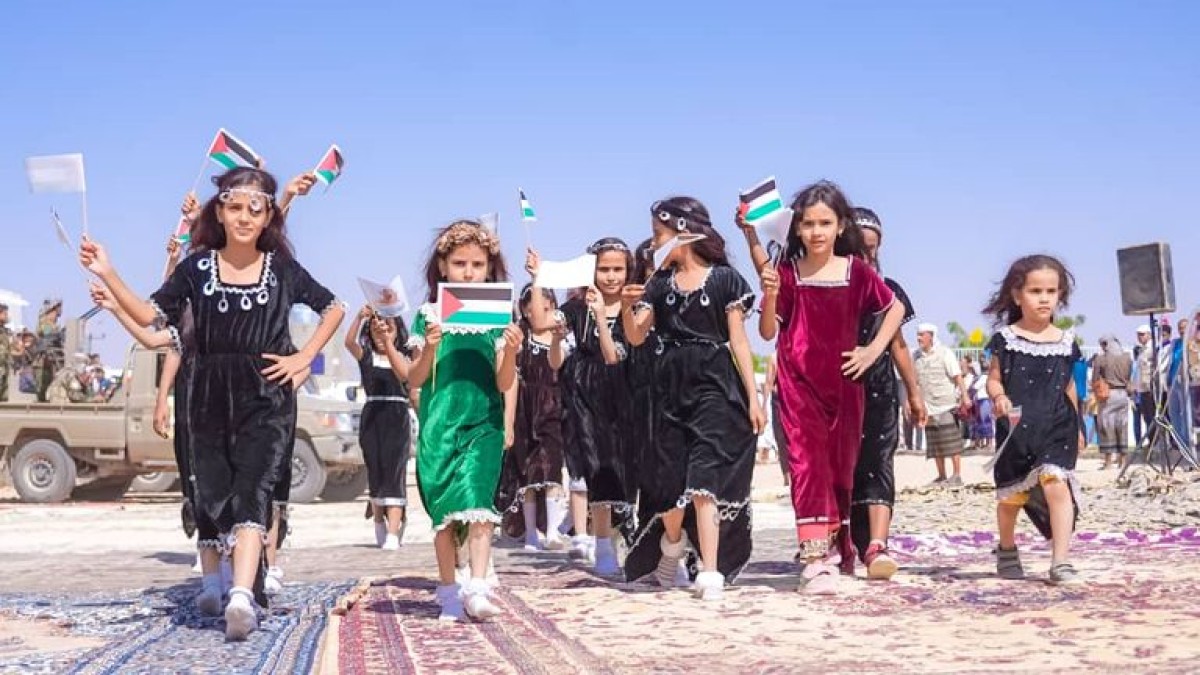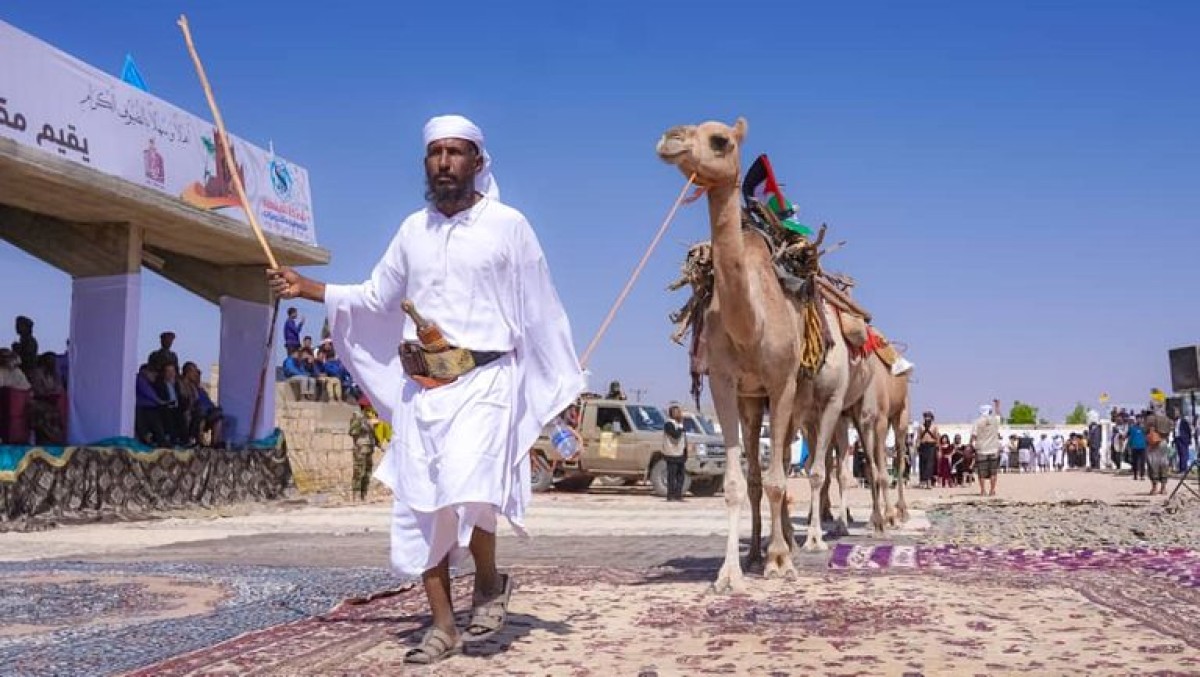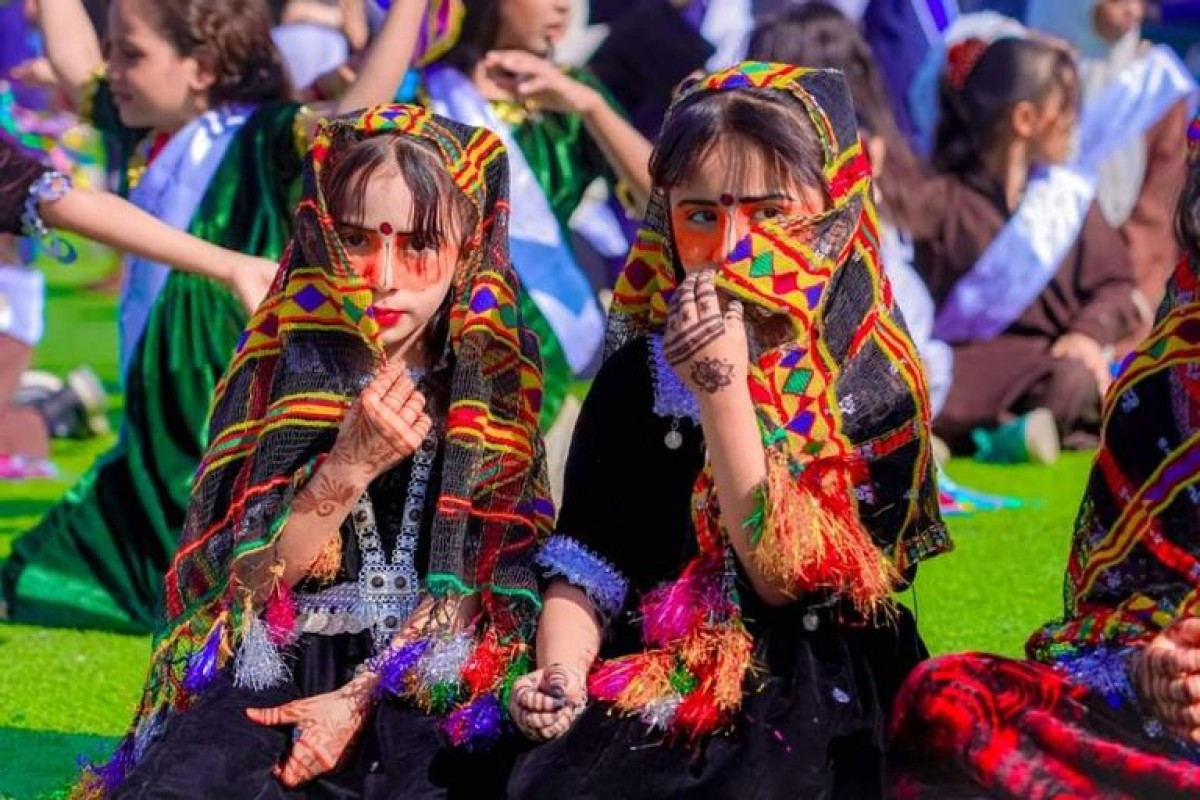Shabwa Heritage and Arts Festival...deep social and cultural dimensions (photos)
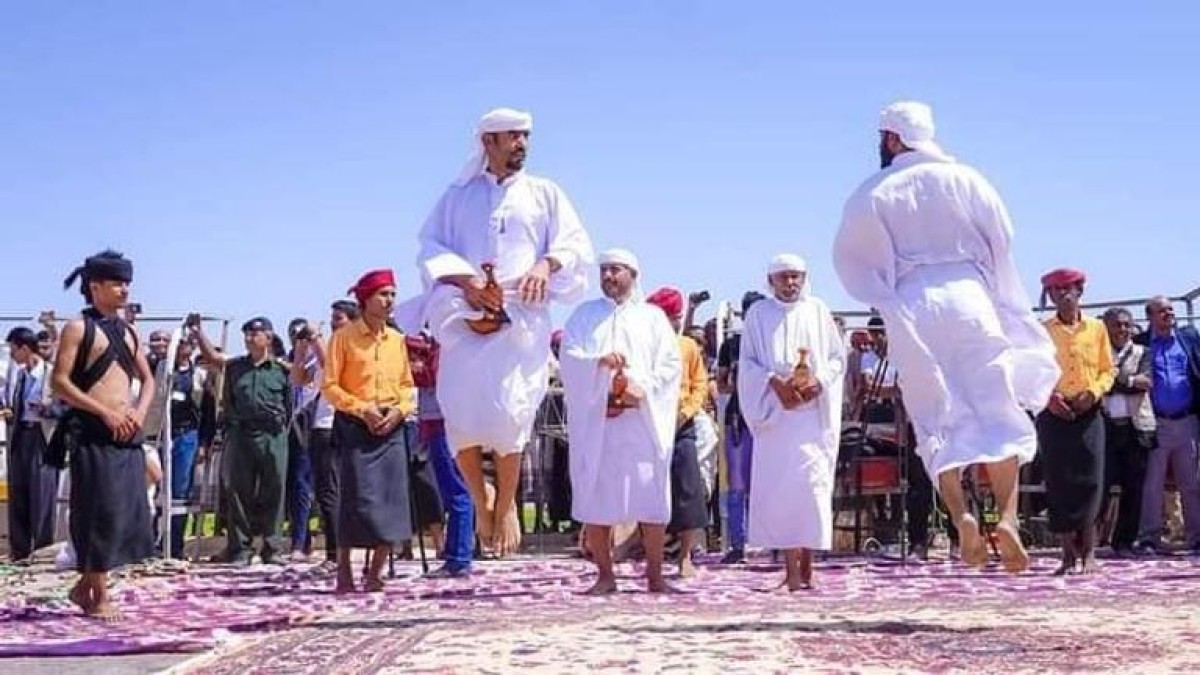

The activities of the fifth edition of the Heritage and Arts Festival, which began on Sunday, and concludes its activities today, Tuesday, continue in Shabwa Governorate.
The festival, which is sponsored by Governor Sheikh Awad Muhammad bin Al-Wazir, is under the slogan: “Shabwa... Heritage and an authentic, vibrant pulse,” and represents the most important and largest cultural, artistic and heritage events in the governorate.
Local officials in Shabwa described the governorate as the capital of culture and the root of the first civilization, given that its land embraced three ancient Yemeni kingdoms and civilizations, and hence the festival, which is being organized for the fifth year, had great importance and prestige.
Strengthening Shabwani identity
The Director General of the Culture Office in Shabwa Governorate, Dr. Faisal Al-Absi, told Al-Ain News that the festival receives great attention from the local authority, led by Governor Bin Al-Wazir. With the aim of enhancing care for the heritage and popular heritage that Shabwa is rich with.
Al-Absi stressed the importance of this festival, which is relied upon to highlight the ancient cultural and artistic heritage of Shabwa Governorate, pointing out that these events contribute to embodying the Shabwani identity and consolidating community ties between the people of the governorate.
The local official indicated that the festival also seeks to enhance the spirit of belonging to the governorate and pride in its cultural stock, highlight the most important crafts, industries, arts and cuisine of Shabwa, and create an environment that emulates the past with the aim of introducing generations to the heritage of fathers and grandfathers and instilling a love of heritage in the souls of young people.
He pointed out that the festival is not just a heritage celebration, but rather it works to develop the cultural and artistic institutional structure of the governorate in general, in addition to refining young talents and providing them with opportunities, adopting and developing the skills of creative people, and marketing a new idea, which is “creativity.”
The Director General of Culture in Shabwa explained that the festival has a social dimension, which is to work to alleviate the impact of the phenomenon of revenge resulting from the negative events that Shabwa has experienced for decades, and to show the positive image of Shabwa Governorate and market it through the festival.
A legendary opening
Al-Absi described the opening and inauguration of the festival as “legendary” through the carnival that was held at Lusail Stadium in the central park in the city of Ataq - the capital of Shabwa -, where the artistic teams affiliated with the Culture Office presented a distinctive singing operetta.
In addition to artistic and folkloric paintings embodying songs, dhamils and folk dances that express the cultural heritage of the governorate, with the participation of more than 600 participants representing the governorate’s directorates and various service and development sectors, according to Al-Absi.
He added: The carnival also witnessed a massive popular presence, as displays of purebred horses and camels were presented, and displays of the governorate’s flowers dressed in traditional dress, which added beauty and elegance to the event and highlighted the rich cultural and civilizational heritage of Shabwa.
Arkans, pavilions and events
The festival included many specialized corners and pavilions hosted by the Poet Yaslam Bin Ali Cultural Center, which included a pavilion for the Shabwaniya Heritage Village, a popular heritage corner, a photography exhibition, and another for plastic arts.
In addition to the Shabwani honey corner, another for silverware, products and handicrafts, a popular food corner, a textiles and handicrafts corner, and a special corner for women’s products.
The festival’s program includes specific events, such as Shabwaniya samra, morning matinees, poetry evenings “Ami and Fasih”, short films, theatrical performances by the theater group in the Bayhan district, and segments from “Rawabi Shabwa” for the governorate’s directorates.
